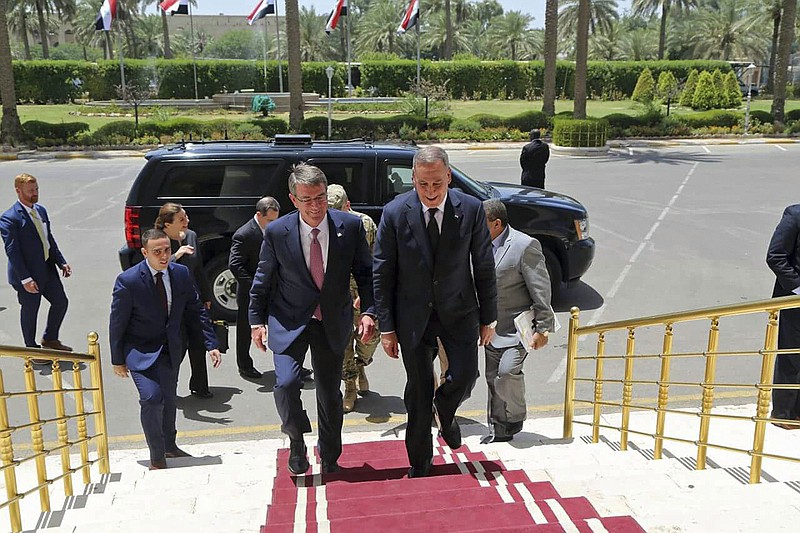BAGRAM AIR FIELD, Afghanistan (AP) - U.S. Defense Secretary Ash Carter is in Afghanistan to meet with U.S. commanders in the wake of a pledge by NATO allies to keep troop levels stable as they battle a resilient Taliban.
It's Carter's second stop in a war zone in as many days, part of a weeklong trip that has underscored America's growing commitment to two wars that President Barack Obama inherited but has not been able to end.
Carter was scheduled to meet with Afghan President Ashraf Ghani and chief executive officer Abdullah Abdullah, as well as his top U.S. commander in Afghanistan, Army Gen. John W. Nicholson.
On Monday in Iraq, Carter announced that the U.S. would be sending 560 additional troops there in the coming days and weeks.
Obama announced last week that he would keep 8,400 U.S. troops in Afghanistan after this year, rather than cut their numbers to 5,500 as he once planned. In addition to taking part in the NATO advisory-and-assist mission, the U.S. has special operations forces in the country that conduct counterterrorism missions.
The planned force levels allow NATO allies to remain in regional hubs around Afghanistan, with Germany in the north, Italy in the west, Turkey in the capital of Kabul and the United States in the east and south.
Earlier plans to consolidate forces in Kabul and Bagram were scrapped amid resurgent Taliban fighting and the growing presence of Islamic State militant, including many that simply switched allegiance from one insurgent group to another.
U.S. Army Gen. Curtis Scaparrotti, the top NATO commander, told reporters at the NATO meeting that the Afghan mission is key to global security.
"We know that there are al-Qaida and (Islamic State) components in Afghanistan," he said. "If we fail there we will certainly see that impact in our global counterterrorism campaign that we're executing. It will make it harder."
Obama came into office pledging to extract America from the nearly 15-year conflict. But with the Taliban gaining ground and it becoming clear that Afghan forces still needed U.S. and coalition support, he urged his fellow NATO leaders in Warsaw to expand their support for the war against the Taliban.
The U.S. has pledged to provide $3.5 billion annually to fund Afghan forces, and the government in Kabul is expected to contribute as much as $500 million. Allies would provide the remaining $1 billion. The funding would maintain a total of 352,000 Afghan Army troops and police officers.
